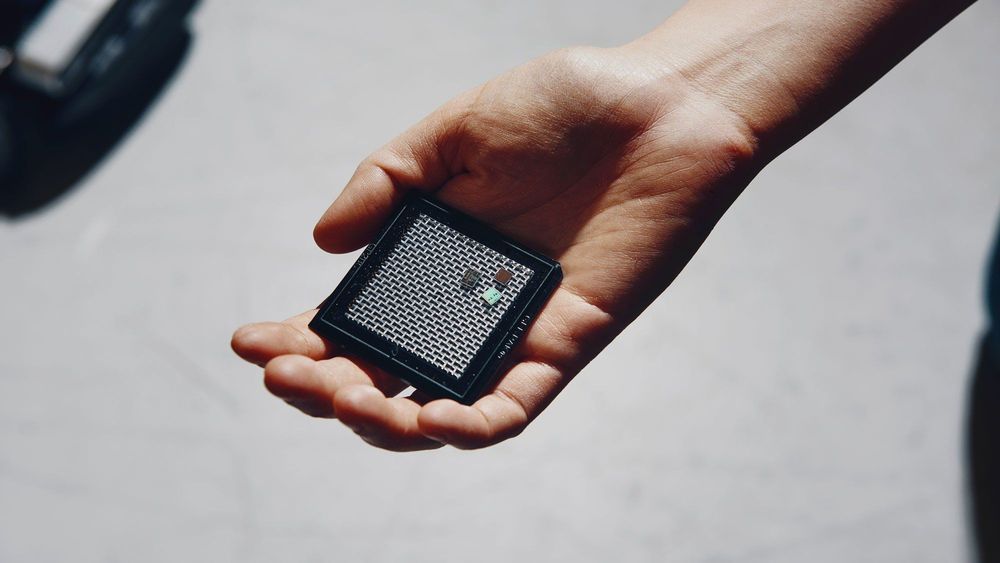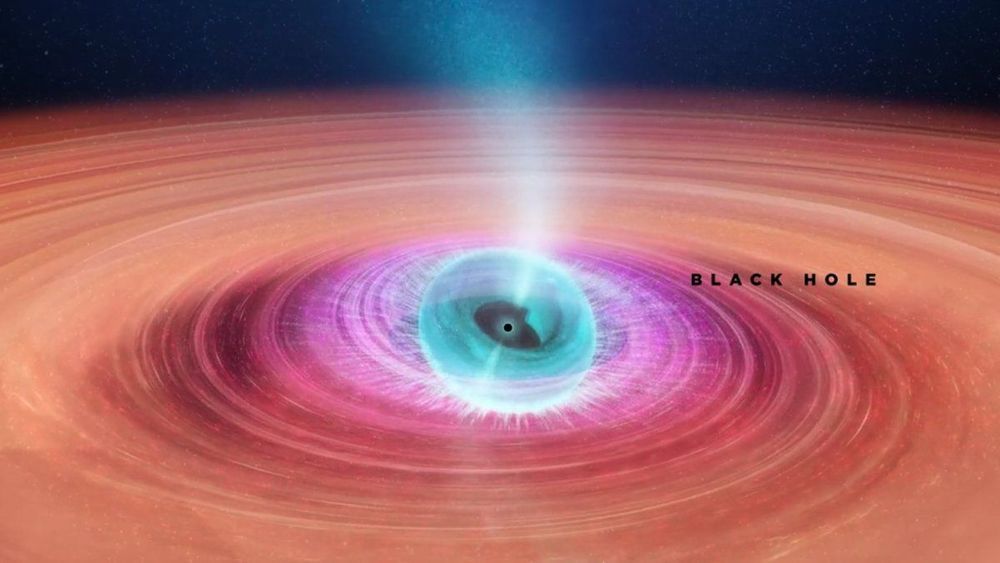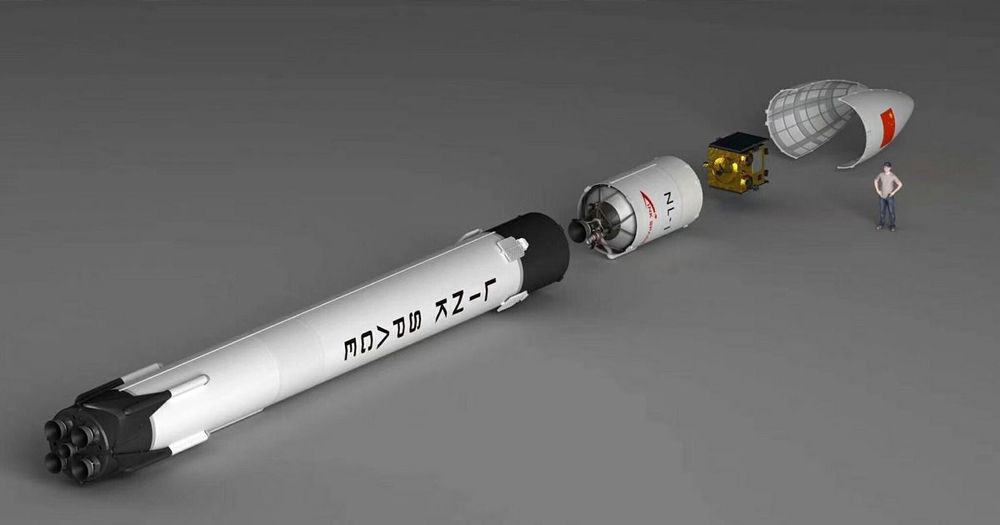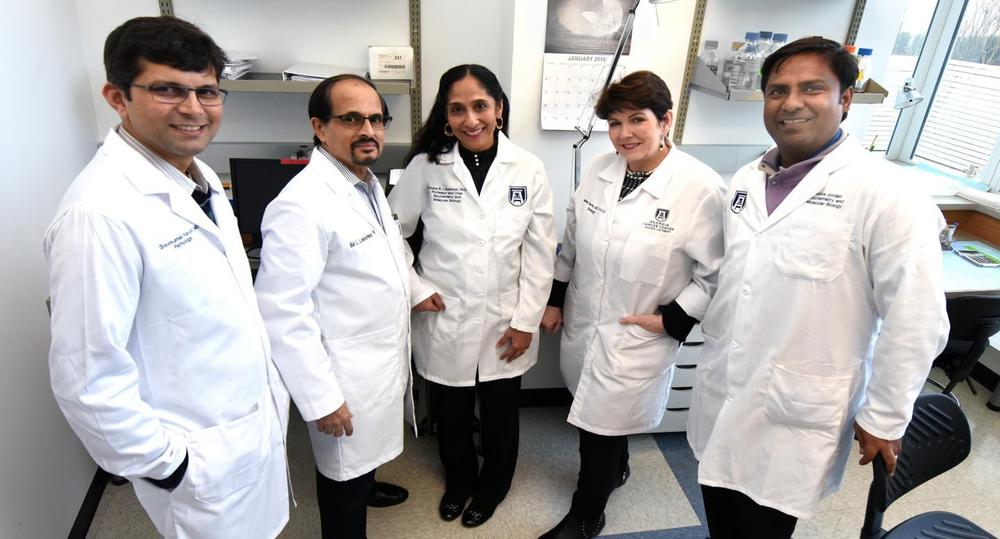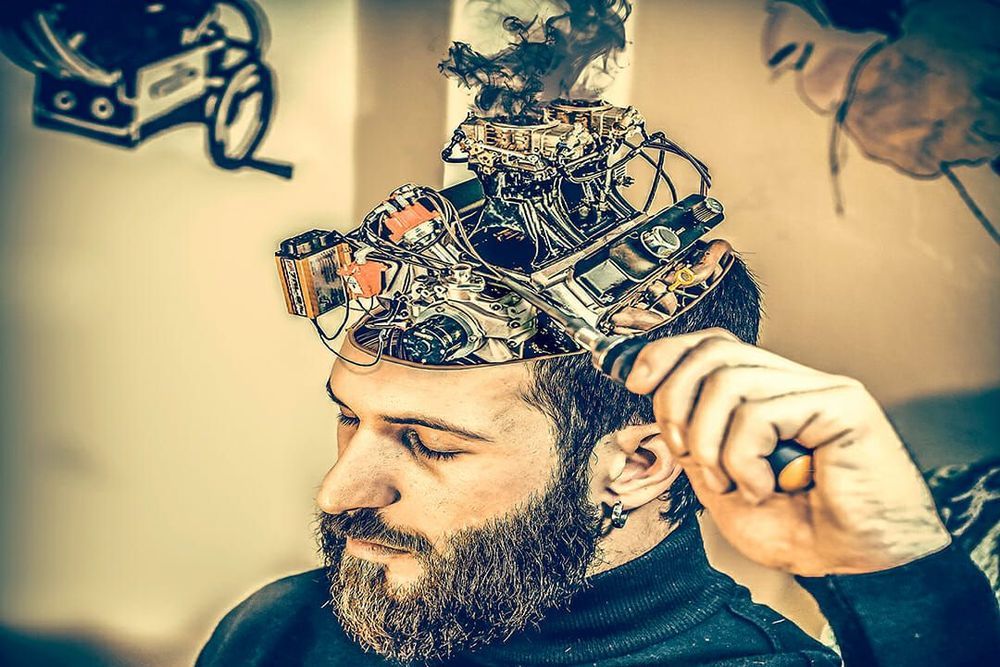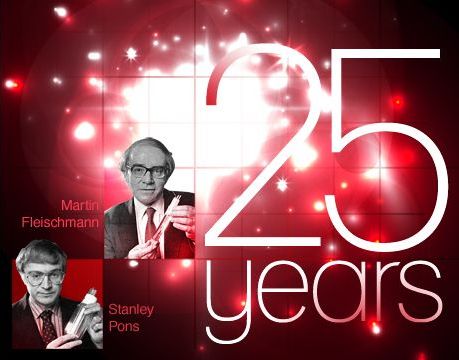Page 8880
May 1, 2019
Astronomers Discover ‘Extraordinary’ Black Hole That Is Warping Space-Time
Posted by Genevieve Klien in categories: cosmology, physics
Nearly 8,000 light-years away from Earth, astronomers have discovered a black hole that keeps rapidly swinging out jets of plasma clouds into space, according to a new study.
The black hole, known as V404 Cygni, doesn’t behave like others. The jets shoot out possibly within minutes of each other and in all different directions. And while the researchers admit that black holes are some of the most extreme objects in the universe, this one is different.
“This is one of the most extraordinary black hole systems I’ve ever come across,” study author James Miller-Jones said in a statement. Miller-Jones is also an associate professor at Curtin University’s International Centre for Radio Astronomy Research.
Continue reading “Astronomers Discover ‘Extraordinary’ Black Hole That Is Warping Space-Time” »
May 1, 2019
Watch Out SpaceX: Chinese Startups Are Testing Reusable Rockets
Posted by Michael Lance in categories: futurism, satellites
Commercial space companies are cropping up left and right in China.
Two Chinese launch startups have successfully tested and demonstrated rockets that set the groundwork for future reusable launch vehicle technology, SpaceNews reports.
China decided to open up the launch of small satellites to private companies in 2014 and at least 15 SpaceX-like startups, according to Reuters, have emerged as a result.
Continue reading “Watch Out SpaceX: Chinese Startups Are Testing Reusable Rockets” »
May 1, 2019
Storage beyond the cloud
Posted by Mike Ruban in categories: biotech/medical, cybercrime/malcode, habitats, internet, space
A new way to store information in molecules could preserve the contents of the New York Public Library in a teaspoon of protein, without energy, for millions of years.
Books can burn. Computers get hacked. DVDs degrade. Technologies to store information–ink on paper, computers, CDs and DVDs, and even DNA–continue to improve. And yet, threats as simple as water and as complex as cyber-attacks can still corrupt our records.
As the data boom continues to boom, more and more information gets filed in less and less space. Even the cloud–whose name promises opaque, endless space–will eventually run out of space, can’t thwart all hackers, and gobbles up energy. Now, a new way to store information could stably house data for millions of years, lives outside the hackable internet, and, once written, uses no energy. All you need is a chemist, some cheap molecules, and your precious information.
May 1, 2019
New video from Undoing Aging 2019: Judy Campisi, Professor at the Buck Institute for Research on Aging, presenting her work on taming cellular senescence, the source of chronic inflammation implicated in major age-related diseases
Posted by Michael Greve in categories: biotech/medical, life extension
undoing-aging.org/…/judy-campisi-presenting-at-undoing-agin…
More info on Forever Healthy: forever-healthy.org
May 1, 2019
Who’s The Decision Maker: Your Brain Or You?
Posted by Mike Ruban in category: neuroscience
The pioneering work of Benjamin Libet showed that our brain begins preparing for movement even before we consciously decide to move. One wonders if someone were to monitor my brain, would they know, even before I do, what action I’m going to take?
It seems an unlikely place to find a discussion on free will, but neuroscientists often grapple with the question of who is making your life choices: Your brain or your consciousness? More importantly, what’s the difference?
A classic experiment from the 1970s and early 1980s that is referenced frequently in these discussions is the work of Benjamin Libet, which showed that the brain begins preparing for movement even before we consciously decide to move. In Libet’s experiment, people were asked to move a finger whenever they were ready. When they had the urge to move, all they had to do was check where the second hand was on the clock. Meanwhile, Libet measured the activity in his subjects’ brains and found that while the conscious decision to move the hand happened on average 200 milliseconds before the person moved their hand, the brain had already begun preparing for this movement a whole second in advance.
Continue reading “Who’s The Decision Maker: Your Brain Or You?” »
May 1, 2019
China’s Tencent pitches vision of artificial intelligence ethics
Posted by Saúl Morales Rodriguéz in categories: ethics, robotics/AI
Apr 30, 2019
Room Temperature Cold Fusion Scientifically Proven!
Posted by Quinn Sena in categories: solar power, sustainability
Forget solar power, forget wind, forget any expensive and polluting way of generating energy! Cold fusion is here, people, and it has been scientifically proven to exist at room temperatures, in a simple experimental lab jar.
Scientists discover source of clean, unlimited energy! In March 1989, the news rocked the world. Two respected chemists from the University of Utah: Martin Fleischmann and Stanley Pons, told a receptive media they had solved the biggest physics problem of the atomic age. Their compelling claims of room-temperature nuclear fusion in a jar were cast as the solution to the world’s colliding environmental and energy crises.
The meltdown hit just weeks later when the claim was nuked by mainstream scientists who couldn’t reproduce their results and were unsatisfied with the team’s explanations. The cold fusion field has been on ice ever since. Whether considered a scandal, a screw-up, or a scientific character assassination by hot fusion advocates, the cold fusion episode is a case study for those who caution against the “science of wishful thinking.”
On the 25th anniversary of the rise and fall of cold fusion, its close cousin, low-energy nuclear reaction (LENR) science, is still on the fringe but simmering anew. Here’s a look back and a look ahead at a field that always gets a reaction.
